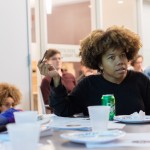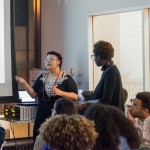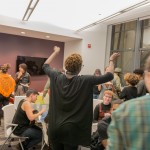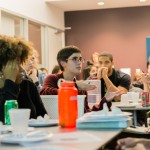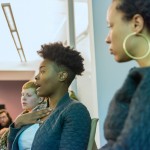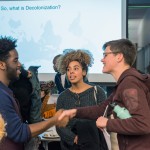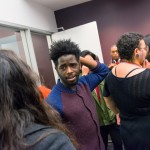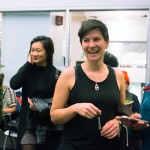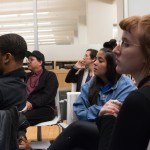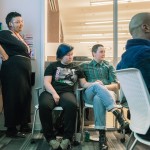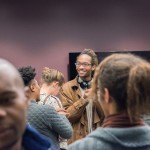Thanksgiving has been celebrated so widely and for such a long time in the United States, it can be difficult to step back and remember the problematic origins of the holiday. While modern Thanksgiving conjures thoughts of overeating, awkward conversations with relatives, and afternoon football, the holiday in fact has violent, colonialist roots.
The tradition of Thanksgiving is commonly traced to a 1621 celebration of harvest in which the European Plymouth settlers were able to feast thanks to guidance and donations from Native American tribes. In return, generations of European settlers committed mass genocide, practically wiping out the more than 500 Tribal Nations that had lived in America before they arrived. There are still millions of people of indigenous descent in the United States, and their voices remain too often silenced.
There have been campaigns to abolish Thanksgiving as a national holiday, but they have mostly been unsuccessful. However, the dialogue around its complicated history has increased in recent years. In an effort to bring those conversations to the forefront at the School of the Art Institute of Chicago (SAIC), student organizations UNIDXS, Black at SAIC, and Indigenous at SAIC hosted an inaugural “Our Histories” dinner to focus on colonization and cultural erasure on November 16. The aim of the dinner, according to its invitation, was to bring together students from traditionally marginalized communities and raise discussion around colonization “in order to reclaim the Thanksgiving holiday.”
The dinner, hosted in the Leroy Neiman Center, brought out more than 60 students, faculty, and staff from multiple disciplines. UNIDXS student Katia Perez originally came up with the idea. According to Itunuoluwa Ebijimi, another student who helped organize the dinner, it began as a discussion around gentrification, but expanded the topic to include colonization and erasure once it was decided that there was simply not enough planning time to do the subject of gentrification justice. Ebijimi said that to really talk about the complexities of gentrification in Chicago, it would have been important to invite a housing activist to come in and speak directly to the issue.
“There was a lot of love and a lot of time spent on planning the event,” Ebijimi said in an e-mail. Student volunteers spent hours planning: They drafted a mission statement, proposed a budget, raised money, and sought support from the SAIC administration. Student Government, Art Education, Art History, Visual and Critical Studies, the Dean’s Office, Multicultural Affairs, and Residence Life contributed to the dinner.
As students packed into the Student Leadership Center, organizers of the event encouraged participants to pick up a set of printed out articles — “Understanding Patriarchy” and “The Oppositional Gaze,” both by bell hooks; “The Master’s Tools Will Never Dismantle the Master’s House” by Audre Lorde; and “Heteropatriarchy and the Three Pillars of White Supremacy” by Andrea Smith — available at the back of the room. Some read while others engaged in conversation as the crowd steadily grew.
Litehouse Grill and Brown Sugar Bakery, both local Chicago black-owned businesses, catered the event. “It was very important to us to get culturally specific food and dessert catered by a local business and owned by people of color,” Ebijimi said.
Once people had settled in, the dinner proceeded with an ambitious slideshow presentation. Vanessa Dion Fletcher, a First student with Indigenous at SAIC, opened the presentation by speaking in her family’s tribe’s native language. (Dion Fletcher is First Nations, specifically Potawatomi and Lenape.) “Language is something that is used to colonize,” she reminded the audience.
The slide show provided information on the insufficient dictionary definitions of colonization, the violent reality of colonization in our country and beyond, and the ways in which colonization affects all of us.
Lasting about 30 minutes, the presentation provided such an enormous amount of educational information that some students took photographs with their cell phones of the slides for future reference. Subjects included the assimilation of native peoples, beauty standards around whiteness, the transatlantic slave trade, colonization and white supremacy in Latin America, colonization of African lands, imperialism in Asia, the Thirteenth Amendment, the prison industrial complex, and heteronormativity as seen in the male-female binary.
After the presentation, participants were invited to use this information to create a definition for decolonization. Ebijimi led the discussion, asking people to talk about what steps they could take towards healing.
“We’ve got to value our own ancestors,” one participant said. He took a dollar bill out of his pocket and added, “This is ancestor worship right here, but it’s the white version. Every day, in order to live, I have to worship him. I have to ask myself, whose culture am I worshipping? And what can I do to honor mine?”
Another participant said, “We need to interrogate how we can use the power we have. We are all privileged just by virtue of being here. We have to use that privilege to give power to other people.”
After a few more comments, dessert was served, and the communal conversation shifted to small groups.
As participants finished their desserts and started filing out, some stragglers hung back to discuss how they felt the event had gone. The consensus was that the dinner had succeeded in starting a conversation around the traditionally erased narratives.
“I feel like there’s going to be more attention for these types of events, because there’s so much going on in the world right now. With Black Lives Matter, the U.S.-Mexico border, gearing up for an election, the University protests going on right now… people are feeling a lot of anxiety around these issues,” said Director of Student Affairs for Diversity and Inclusion Rashayla Marie Brown.
Students were encouraged to sign up for a collaborative resource list that would grow from the dinner. So far, the shared list includes the books “Mestizo: The History, Culture and Politics of the Mexican and the Chicano — The Emerging Mestizo-Americans” by Arnoldo Carlos Vento; “1491: New Revelations of the Americas Before Columbus” by Charles C. Mann; “Borderlands/ La Frontera: The New Mestiza” by Gloria Anzaldua; and the website “Decolonizing Trans/gender 101.” Organizers of the dinner are hoping the list will continue to develop.
In her evaluation of the event, Ebijimi wrote that though the dinner was successful in many aspects, it did not achieve its goal of redefining colonization or decolonization. She noted that there was too much to discuss and too little time to discuss it.
Carolina Poveda, who is a member of UNIDXS, also said that they thought the dinner went well. Poveda helped organize the event, and provided resources and book suggestions throughout the evening.
Overall, the dinner met an even more important objective: It provided a space to push against the prevailing narrative around the Thanksgiving holiday. The dinner’s popularity and the expansive subject matter both speak to the necessity for more events like these. The campus groups involved with the dinner’s organization plan on more events and conversations — specifically around gentrification issues in Chicago, as well as a continuation on the discussion of decolonization — in the future.
During the presentation, there was a moment where Ebijimi seemed almost apologetic that there was so much to cover. She said, “I’m sorry, this is a lot,” but then cut herself off. “But no! I have to be real! There is so much to include, even this isn’t everything. We have to talk about this stuff.” To which the audience exploded into supportive applause.



